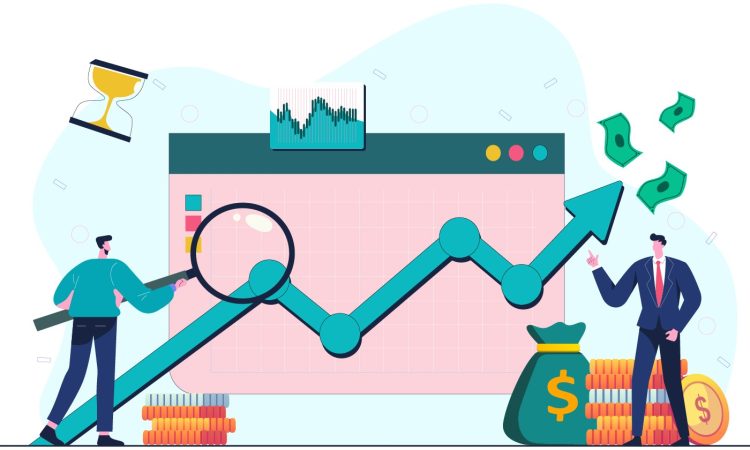
Sales teams today face increasing pressure to generate leads, nurture prospects, and close deals efficiently. To achieve these goals, businesses need the right sales tools to streamline processes and enhance productivity. With a wide range of options available, knowing which tools to integrate into your workflow can make a significant difference in performance and revenue generation. This article highlights the essential sales tools every business should consider.
1. Customer Relationship Management (CRM) Tools
A robust CRM system is at the heart of every successful sales strategy. It helps teams manage customer data, track interactions, and build stronger relationships. CRMs also enable businesses to organize leads, monitor progress, and automate workflows.
Benefits of CRM tools:
- Centralized customer data management
- Efficient lead tracking and segmentation
- Automated reminders and follow-ups
Popular CRM tools: Salesforce, HubSpot CRM, Zoho CRM
By providing valuable insights into customer behavior, CRM systems ensure that sales representatives can personalize their approach and close deals faster.
2. Sales Engagement Platforms
Sales engagement platforms help automate and optimize communications with leads through emails, calls, and messages. These tools track engagement metrics, allowing teams to determine which outreach methods yield the best results.
Benefits of sales engagement platforms:
- Increased productivity by automating routine tasks
- Better email and call tracking for follow-up optimization
- Integration with CRMs for streamlined processes
Popular options: Outreach, SalesLoft, Reply.io
These platforms help sales teams stay organized and ensure that no potential customer slips through the cracks.
3. Lead Generation Tools
Finding qualified leads is one of the most important aspects of sales. Lead generation tools assist in identifying, qualifying, and prioritizing leads based on their likelihood to convert.
Key benefits:
- Identify potential customers more efficiently
- Access contact details and decision-makers in target companies
- Automatically qualify leads based on criteria
Top tools: LinkedIn Sales Navigator, Clearbit, Apollo
With lead generation tools, sales teams can focus their efforts on prospects that are more likely to convert, maximizing their time and resources.
4. Proposal and Quotation Tools
The process of creating proposals and quotes can be time-consuming, especially when dealing with customized pricing or service packages. Proposal tools help automate the creation of professional, error-free proposals.
Benefits:
- Faster proposal generation and customization
- Consistent branding and pricing across teams
- Integration with CRMs for accurate data pulling
Popular tools: PandaDoc, Proposify, Qwilr
By reducing the time spent on manual proposal creation, businesses can close deals more efficiently and reduce errors in pricing or scope.
5. Document Management and e-Signature Tools
Closing deals requires efficient documentation, and e-signature tools have revolutionized this process. Instead of relying on physical signatures, businesses can send documents electronically, reducing delays and administrative tasks.
Key benefits:
- Faster contract approvals
- Improved document security and compliance
- Seamless integration with sales workflows
Popular tools: DocuSign, Adobe Sign
With electronic signatures, contracts can be signed from anywhere, speeding up deal closures and enhancing customer satisfaction.
6. Sales Analytics Tools
Sales analytics tools provide actionable insights into performance, helping teams identify what works and what doesn’t. These tools track key metrics, such as conversion rates, sales cycle length, and lead quality, to improve strategies.
Benefits:
- Data-driven decision-making
- Identification of bottlenecks in the sales funnel
- Optimization of sales tactics based on performance
Popular tools: Clari, InsightSquared, Tableau
By continuously analyzing data, businesses can refine their strategies to achieve better results over time.
7. Email Tracking and Automation Tools
Email outreach is a key part of the sales process, and email tracking tools allow sales representatives to see when prospects open their emails or click on links. Automation features enable them to schedule follow-ups and personalize outreach at scale.
Benefits:
- Monitor email engagement for better follow-ups
- Automate repetitive email sequences
- Increase personalization using templates
Popular options: Yesware, Mailshake, Reply.io
These tools save time and improve response rates by ensuring that outreach efforts are targeted and timely.
8. Collaboration and Communication Tools
Collaboration tools are essential for keeping sales teams connected, especially in remote or hybrid work environments. Effective communication ensures that team members can share updates, discuss strategies, and provide support in real time.
Key benefits:
- Enhanced coordination between team members
- Improved knowledge sharing and brainstorming
- Faster issue resolution
Top tools: Slack, Microsoft Teams, Zoom
With effective collaboration, teams can work together more efficiently to close deals and meet sales targets.
9. Pricing and Quoting Tools
Pricing tools enable sales reps to quickly create accurate quotes based on customizable product and service configurations. These tools ensure pricing consistency while providing flexibility for personalized deals.
Benefits:
- Faster quote generation
- Consistency in pricing and discounts
- Integration with CRMs for accurate data
Popular tools: CPQ (Configure, Price, Quote) software like Salesforce CPQ and Oracle CPQ
Conclusion
Incorporating the right sales tools into your workflow can significantly impact productivity, efficiency, and revenue. From CRM systems and proposal tools to collaboration platforms, each tool plays a unique role in enhancing the sales process. By selecting the tools that best fit your business needs, you can create a streamlined, optimized approach to sales that delivers results. Investing in these tools is not just about saving time—it’s about building a foundation for scalable growth and success.
